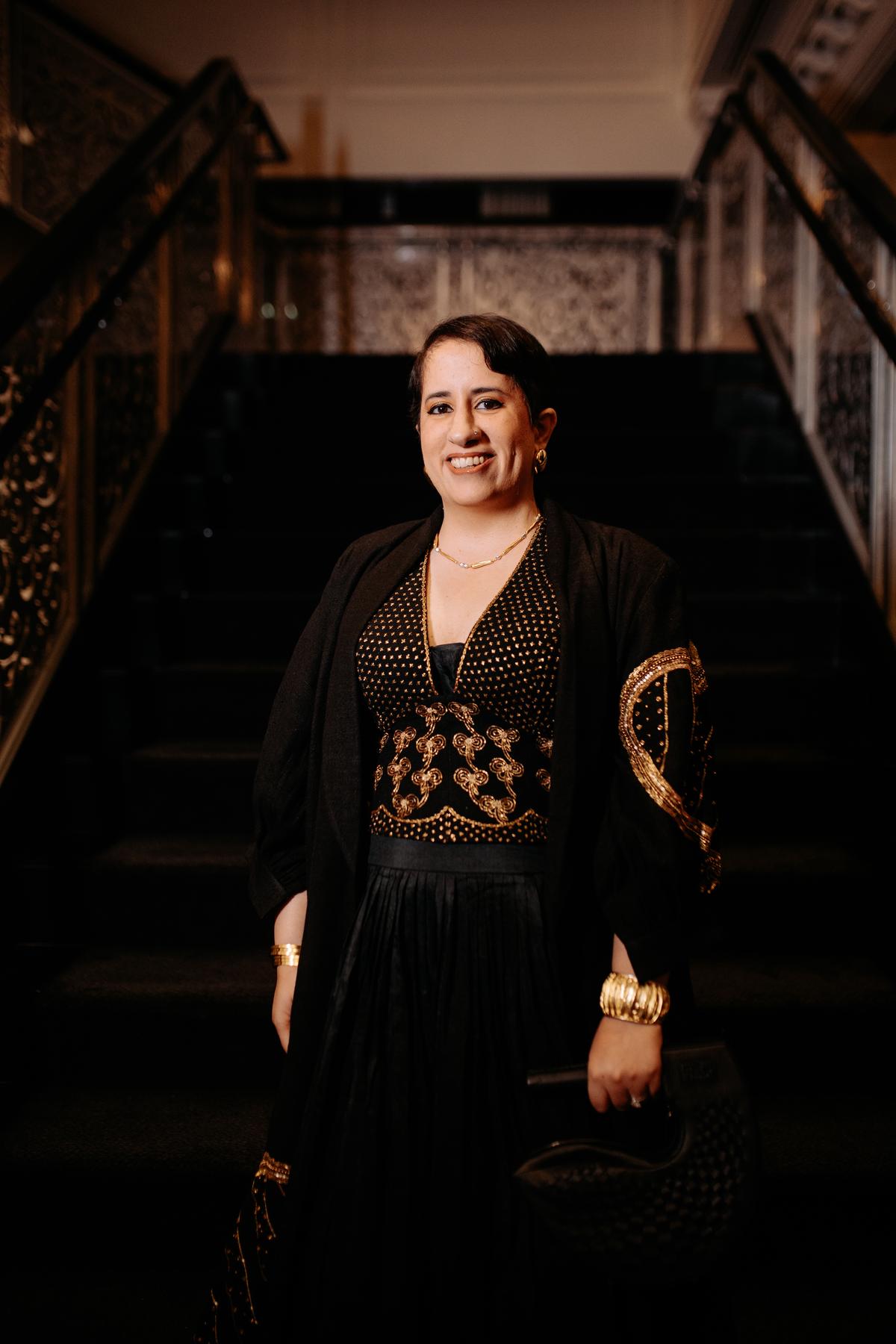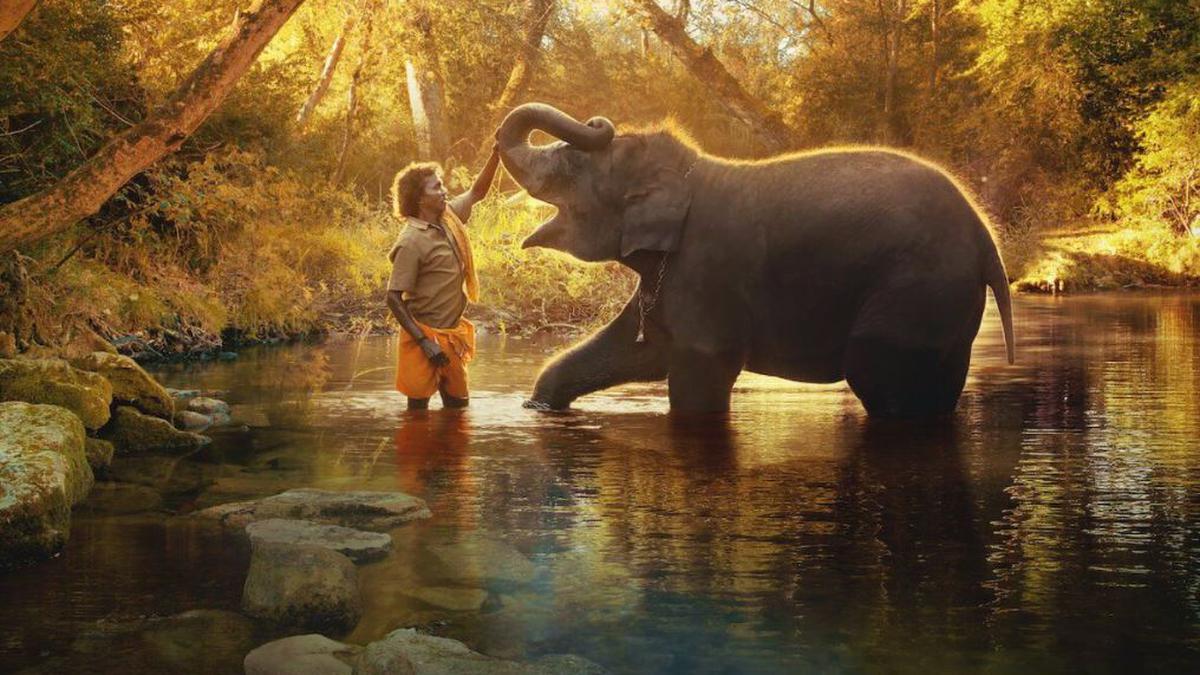In Europe, independent producers are called tastemakers, but in India, that breed became almost extinct until a gutsy girl from Delhi emerged on the scene. Combining passion with pragmatism, Guneet Monga came through the ranks to sell absorbing Indian stories to the world. Tell her an idea whose time has come and Guneet will give it the right shape and size to make it commercially viable, festival-friendly, and award-worthy.
We woke up to Guneet’s touch with The Lunchbox. A decade and two Academy Awards later, she introduced us to what a classic genre film tastes like with Kill. A rare critic-friendly action thriller that has found life at the box office, Kill also marks Guneet’s Sikhya Entertainment’s second collaboration with Karan Johar’s Dharma Productions. The unlikely pair of independent voice and mass appeal is taking the partnership forward with Gyaraah Gyaraah, a police procedural that takes the shape of a mystery thriller, releasing this week on Zee5.


“We need more producers who are willing to travel that extra mile and do innovation in the business of cinema,” says Guneet
“I am innovating by the day,” says Guneet, in Delhi to catch up with her ailing mother-in-law. She describes herself as a “producing geek” who will do whatever it takes to make a film happen. “I crowd-funded films when there was no structure around the process for Peddlers and Haramkhor. I have worked so hard for many years to open the doors of foreign production and distribution companies like Pathe to collaborate with us.”
In our film industry, Guneet says, “We need more producers who are willing to travel that extra mile and do innovation in the business of cinema.” Post COVID, she says, things became “challenging for all of us”, pushing producers to look for fresh ideas to keep the audience invested. “We are a 100% equity industry. I can disrupt it one story at a time. I am not a studio. I can’t do it at scale. It takes two to three years to make a film. So it is incredible that family-run production houses are joining hands with us.” Excerpts from an interview…
How do you see your partnership with Karan Johar?
It is empowering. I being independent and Dharma being as commercial as Hindi cinema can be, I see it as an ongoing good partnership of content and scale that provides pan-Indian accessibility. I think Karan is also a cinephile at heart. He saw the potential in The Lunchbox and was very supportive when others were like ye kaya bana diya (what have you made). A decade later we again came together with Kill which is again a one-of-its-kind attempt that has brought extreme action as a genre to India.

What made you experiment with the classic action genre in India?
Stylised action films like Old Boy, Kill Bill, and the John Wick series have done well in India. Quentin Tarantino has a huge fan base here. Deadpool & Wolverine has a massive opening despite being an adult film. Why can’t we do it in a rooted Indian scenario? Kill is an expensive independent film that required a certain budget and distribution network to bring the vision to life and the partnership with Dharma helped in realising it.
How do you see the excessive violence in the film?
Kill is a classic genre film. Calling it violent is like saying that a horror film made one feel very scary. From the beginning, we said it is India’s most violent film. It is a thought-through script that doesn’t celebrate violence. I liked the Mashable review that says Kill loves and hates its violence in equal measure. The film delves into the thought that violence leaves no winners. After a point, you start feeling bad for the goons. They are jobless youth who took the train for a small robbery but the sequence of events accelerates out of control. It is one of the most well-reviewed films by critics and is being remade in English.
While Indian documentaries are making a mark at the Oscars, our feature films are not getting shortlisted in the Best Foreign Film category.
For feature films, an India committee picks the contenders. Documentaries don’t go through such a process. The committee needs to choose films with solid US distribution because it is an American award. I am not saying that it will guarantee the award but if you work with the American distribution network, the possibility will be higher – if not today, maybe five years down the line we will get it right. For Indian producers, running a campaign in the US is both expensive and exhaustive. With an American distributor, the chances of the film getting written about and becoming part of popular culture are higher. Both Period End of Sentence and The Elephant Whisperers were with Netflix. Its offices helped us understand the know-how of the process and extend the documentaries to different sets of voters.

A still from ‘The Elephant Whisperers’, which won Best Documentary Short at the 95th Oscars
Do you return to the spaces where the documentaries are set to check the impact on the lives of people that these films celebrate or talk about?
As filmmakers, we tell stories. The socio-economic impact is a larger conversation that is beyond us but I am in the midst of setting up a rural distribution network. I have tied up with Frontier Now, She Leads Bharat, and Equality Now to take documentaries to the grassroots. Theatres don’t screen them. Digitisation has happened but are OTT platforms keen on the form?
I organised some screenings in and around Hapur (where Period End of Sentence was based) recently. I had put together a fundraiser in Los Angeles. I have the money to hold ten screenings. I am raising the money to hold 10000 screenings so that it becomes a movement.

There was a time when you used the NFDC and government treaties for foreign collaborations but now you are working with private equity. Has it impacted the content?
The treaty with France was signed in 1985 but I was the first one to use it for The Lunchbox and the second time for Masaan. I am still doing co-productions but they are differently structured now. I am doing a co-production with the US where we don’t have a treaty. It depends on producer to producer and the production hustle. I have worked with Balaji Pictures as well on Pagglait and Kathal. To me, they were independent films but found their way on Netflix. It depends on how you choose to tell your story.

